This Is What Life Could Look Like 100 Years from Now
What’s the future hold? In 2018, you needn’t pay a few dollars for a fortune teller with a crystal ball—or a dog-eared copy of Isaac Asimov—to try and peer into the future. No, today we have futurists. These are usually deeply educated soothsayers who rely as much on data and trend lines as they do on their imaginations to paint a picture of what life will be like many years down the road.
So, what will the world look like in 100 years? We spoke with several of these futurists to get a sense of what life will be like a full century down the road. So read on, hop into our DeLorean, and enjoy these details about what life will look like 100 years from now!
1
Telecommunication Infrastructure will Cease

Scott Amyx, author of Strive: How Doing the Things Most Uncomfortable Leads to Success, out next month, predicts that we will see a new form of communication over the next century—through quantum mechanics.
“We are already testing quantum key distribution from space to land instantaneously, near-light speed,” he says. “The future will not have cell towers or fiber optics cables. Data anywhere can be transmitted immediately without the traditional teleco infrastructure. The next 100 years will be the era of quantum computers.” Is your mind blown yet? If not, check out the 20 Crazy Facts That Will Blow Your Mind.
2
You Will Live Multiple Lives in the “Multiverse”
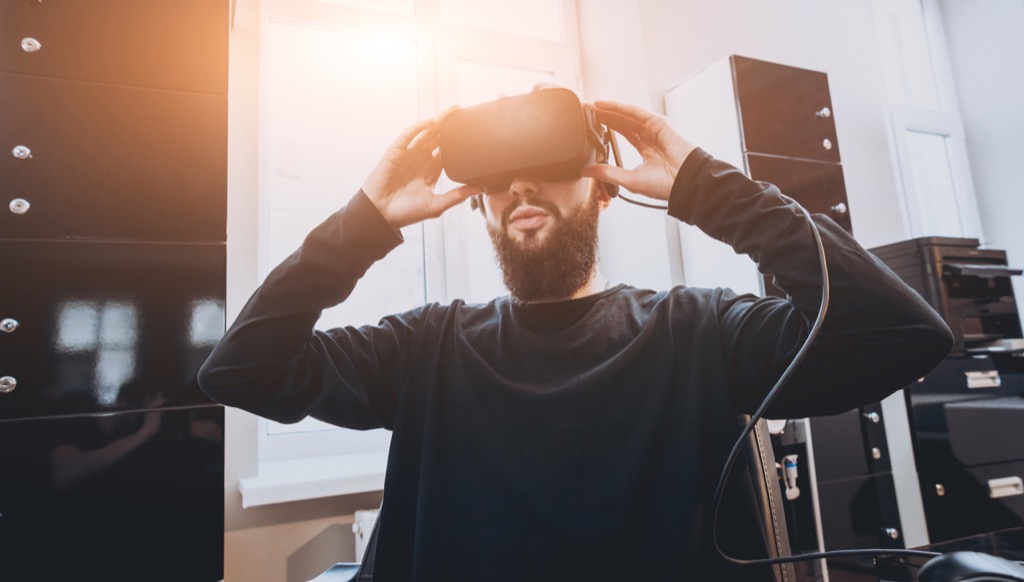
Who needs just one existence when you can have several happening simultaneously? Any fans of Doctor Strange are familiar with this concept of parallel worlds coexisting. But the next century will see these develop, according to Amyx, from virtual to real—for better or worse.
“In a given day, we can weave in and out of multiple virtual worlds via immersive VR/mixed reality with direct pathway to neurons using a combination of VR/contacts and semi and invasive brain computer interface,” says Amyx. “That means we can have different social-economic status and societal roles depending on the virtual world that we enter. Some may choose to live almost exclusively in virtual worlds, ushering the era of virtual mind opioids.” And for some amazing facts about present-day technology, here are 20 Crazy Facts You Never Knew About Your Smartphone. ae0fcc31ae342fd3a1346ebb1f342fcb
3
We’ll be More Communal

The top-down approach to governing will shift to one that’s more community-oriented and democratic, according to Rohit Talwar, a global futurist, and founder and CEO of Fast Future. Citizens will be provided certain services—such as food, education, utilities, and transportation—free of charge, and will feel a greater stake in their community.
“Old notions such as government have been replaced by community decision making and the community at large now owns the intellectual property for all new advances in science and technology,” says Talwar. “The community is also a 50% shareholder in every business, with the returns reinvested based on priorities set by the community. You can still work if you want to – but no one has a job, we just play various roles in society, and self-organization by activities is the way most things get done.” And to get along better with your future neighbor, try the Best Way to Make New Friends.
4
Lifespans and Education Grow

Talwar also sees lifespans growing to “150 years or more” meaning that “there is plenty of time to try our hand at everything we’d like to do.” Expect to see not just traditional education as we understand it, but more lifelong learning and a focus on “maximizing the individual’s talents and potential.”
Talwar adds that education centers such as schools, colleges, and universities will become more central (and free) to the community, with courses running, either in-person or virtually, around the clock. And if you’re struggling through a not-so-free college education right now, get ahead with these 20 Things Your College Professor Won’t Tell You.
5
Your Credit History Will Be Part of You, Physically

Alexander D. Lopatine, managing director of Fintech Advantage, Paladin fs, expects that every payment and transaction will be forever recorded in a kind of “universal ledger.”
“Everybody would have a chip installed immediately at birth,” he predicts. “The transactions would be displayed through a lens placed on your retina. Your credit score would fluctuate constantly based on every transaction or life event recorded in the ledger.”
Then, every time you seek a loan, you would be scored instantly and receive offers from various lenders with an interest rate calculated to that moment—based not just on finances, but health data, which “will be constantly streamed and added to the ledger and the credit score.” Hey—all the more reason to learn How to Be Much Better with Money.
6
AI Will Become Part of You

Before a baby even leaves the hospital, he or she will be installed with sensors and possibly even actuators which will allow for health monitoring, geolocation, and more. That’s the prediction of Chris Nielsen, founder and EVP experience design for technology company Levatas, as well as a futurist.
“While these enhancements feel scary or unnecessary today, the benefits of this symbiotic relationship between humans and technology will be many, in terms of health, safety, security, and convenience,” says Nielsen. “Sensors as small as blood cells will travel the body’s bloodstream, identifying health risks and reporting them automatically for preventative care. Parents will always know where their kids are, with pinpoint accuracy due to location-aware capabilities of the sensors.”
For example, Elon Musk is already developing early-stage neural lace prototypes, so this technology will likely be far more evolved in 100 years. For more amazing future plans, here are Russia’s Crazy Plans for a Space Hotel.
7
Privacy Concerns Will Evolve

“What about privacy?” you might ask. Well, Nielsen, suggests that it will be far less important in 100 years than it is today (and it’s already a lot less important today than it was a decade ago).
“Privacy will continue to be a substantial concern in this future, but the benefits will slowly begin to outweigh the risks in the mind of the public,” he says.
8
Automation Will Increase
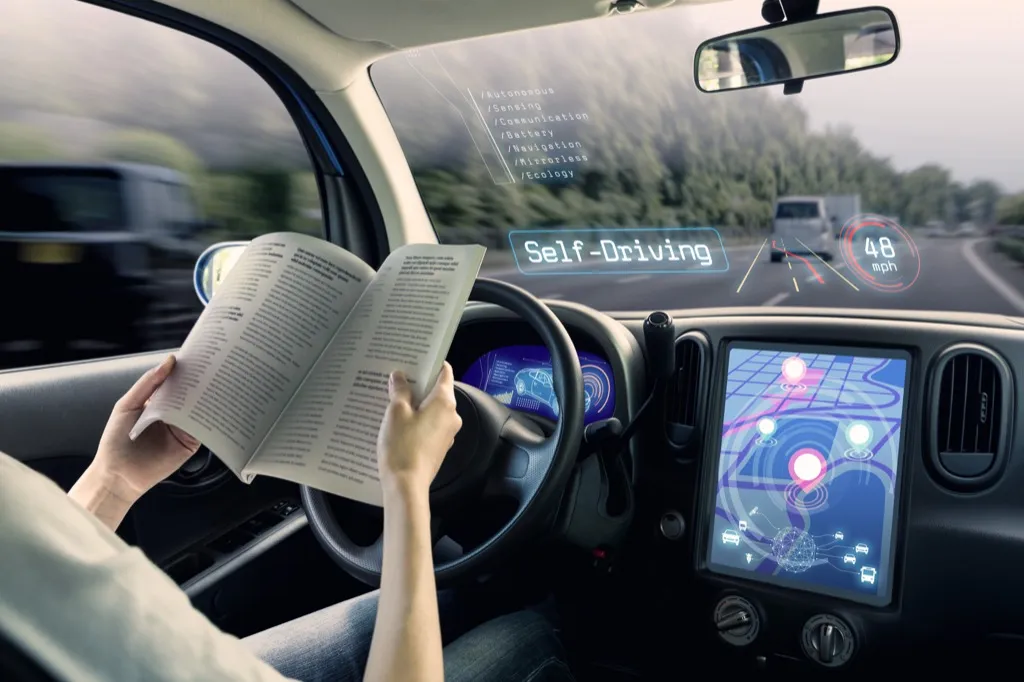
The automation we’ve seen happen in manufacturing will spread to many other professional fields, says Nielsen. Self-driving automobiles will take over for professional drivers and truckers, automated payment options will replace cashiers and check-out people, and so on.
“This means that citizens without specialized training will begin to find themselves struggling to find work,” says Nielsen. “This macro-economic shift means that governments will begin to consider, and soon pass, various forms of universal basic income (UBI). This would mean that citizens who cannot find work would receive a regular, livable, and unconditional wage from the government. UBI is an advanced form of a welfare program. While it’s too early to predict the ways this will play out, ultimately, it is believed that it will be prevalent globally within 100 years.”
9
Colonization on Other Planets Will Have Begun
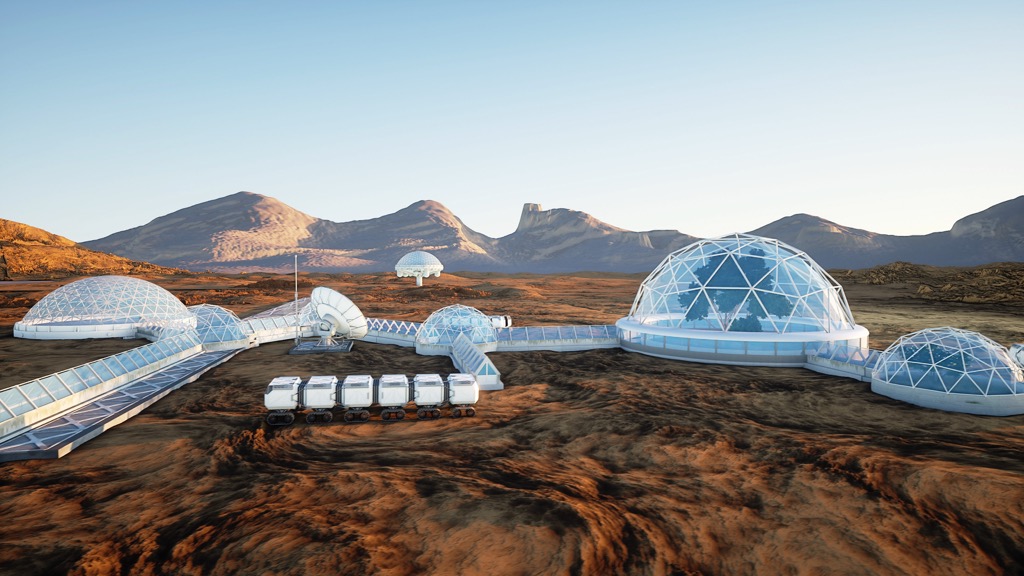
While once the stuff of far-out science fiction, colonies on distant planets have become less crazy in recent years, especially as the cost and access to space travel has become increasingly affordable and democratic.
“We’re going to be living on other planets and probably in other galaxies,” predicts Chris Nicholson, CEO of deep learning/AI company Skymind. “Just think how close we are to sending humans to Mars with SpaceX now.”
Nielsen agrees.
“Within 100 years, there will be some form of permanent human ‘colony’ living and working on the moon, used as a staging point for efforts elsewhere, and there also likely will be some smaller form of permanent base of operations on Mars,” he suggests. “The effort to become a multi-planetary species has already begun, and will be even more evolved in 100 years.” And for more mind-blowing knowledge, check out the 30 Facts You Always Believed That Aren’t True.
10
Colonization Will Be a Private Affair
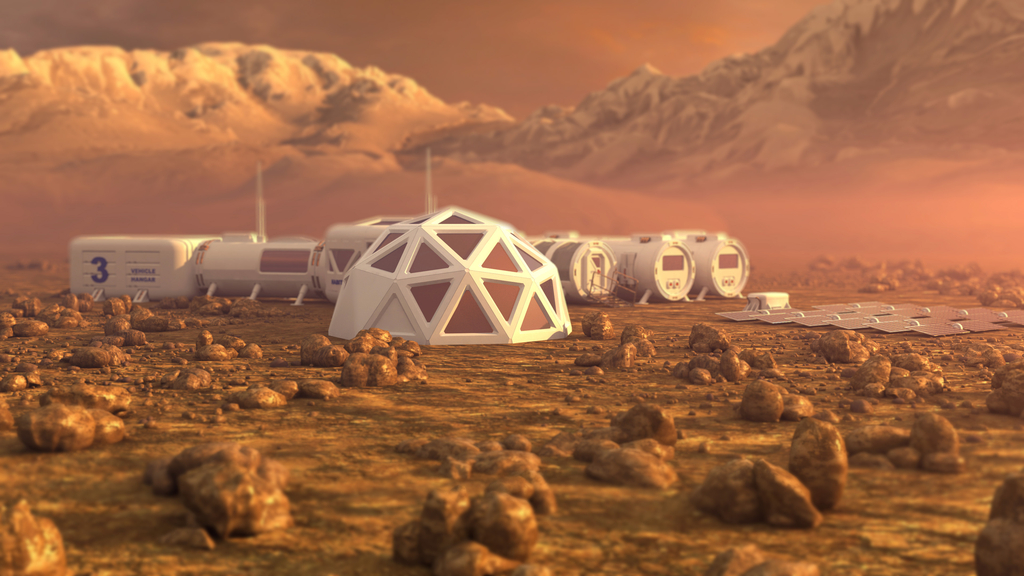
Speaking of colonization, Steve Wells, COO of Fast Future, expects to see a full departure from the government-coordinated space race of the 20th century and instead it will be the private sector running things.
“Both the Moon and Mars became staging posts for autonomous missions deep into the solar system as the search and commercialization of other planets gathers pace,” he predicts, expecting both the Moon and Mars to “thrive with corporate governance.”
11
Abundance Will Rein

Wells also expects the world of 100 years from now to be an era of abundance, “where technology has been deployed for the good of society; where products and services are basically free across a numbers of linked nation states and trading / political blocks with reasonably successfully harmonized taxation and regulatory systems.”
That said, Wells expects that some nation states will continue to struggle with progress, especially as the pace only moves faster.
12
We’ll Get By With a Little Help from Our Robots
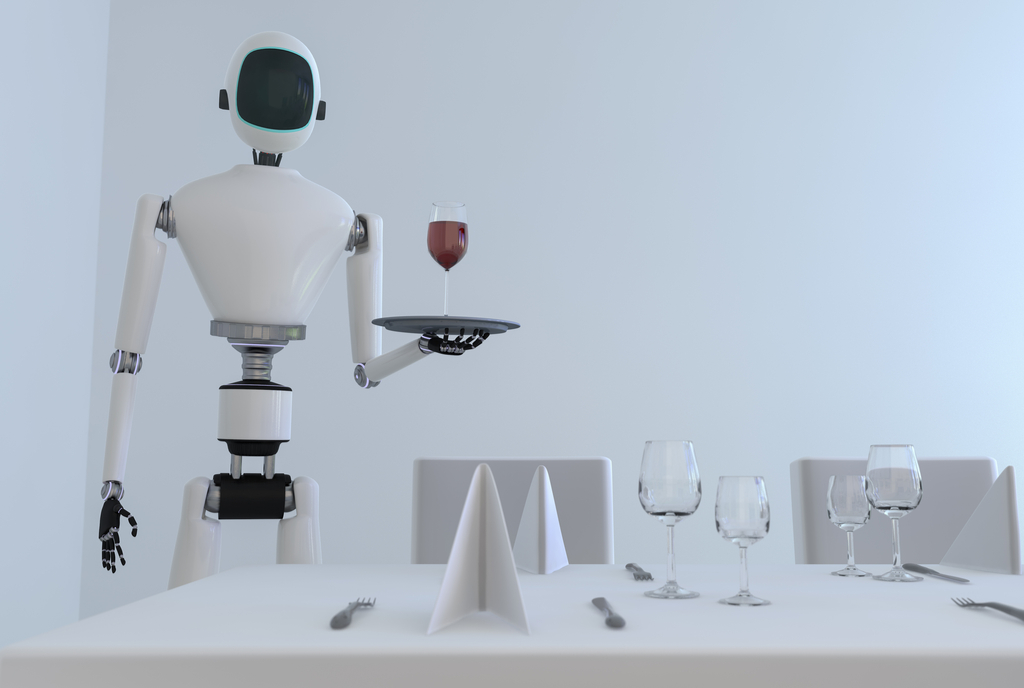
Just as Siri and now Alexa and Echo are quickly becoming ubiquitous, the average person will soon be able to afford their very own robots—perhaps even duplicates of themselves to get the work they never seem to have time in the day to do.
“If we have to do work at all, each person will have several robot clones that learn how to imitate them, and that person will lead their own flock of clones to complete a task,” says Nicholson. Until then, have fun with the 20 Funny Things to Ask Your Amazon Alexa.
13
We’ll Forget How to Drive
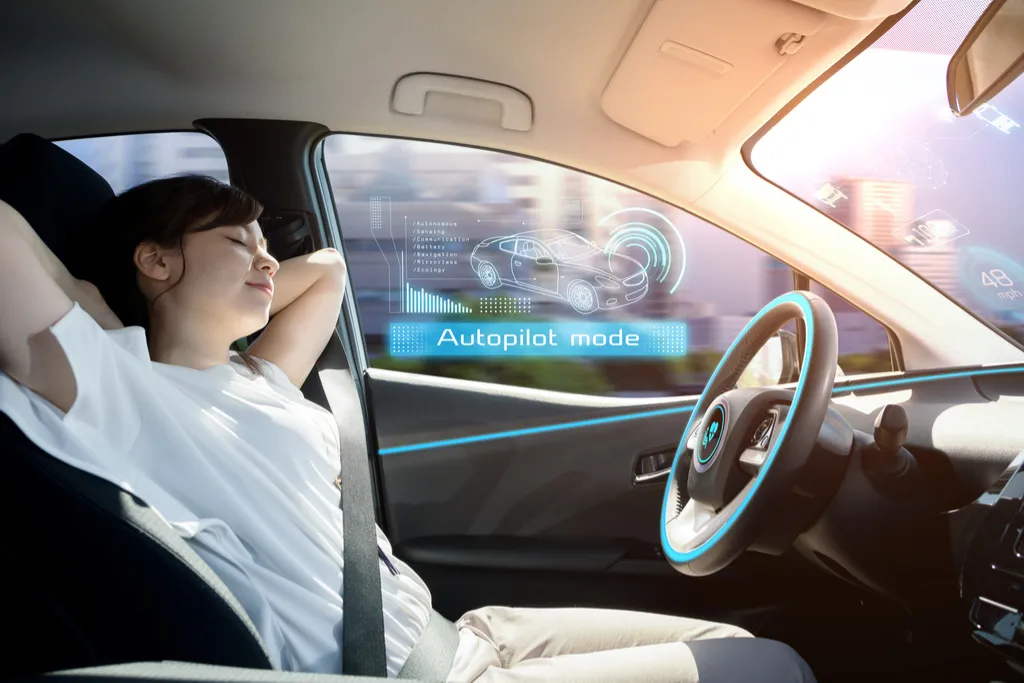
“By 2118, nearly all personal travel will occur within autonomous vehicles (AVs),” predicts David Tal, president of Quantumrun Forecasting, a strategic forecasting agency. “We’re already seeing the groundwork for this tech taking shape in all parts of the developed world. And the competition between China and the U.S. to dominate the AV industry will ensure adoption of this tech comes about far faster than most people expect.”
14
TVs (and Other Tech Toys) Will be Long Gone

Tal also expects that many of the devices and electronics—even furniture and décor—we interact with regularly today will be things of the distant past.
“For example, future augmented reality (AR) glasses will become so advanced that after asking your home AI to play latest Netflix series, your AR glasses will immediately materialize a fully lifelike flatscreen display hovering in the air in front of you—mind you a display that can be any size you’d like,” he says.
In fact, the furniture itself will become virtual, or at least its appearance.
“Any non-weight-bearing piece of furniture or home decoration can be entirely digitized so that with a simple voice command, your home décor can switch from modern, to rustic, to Mediterranean and back again,” he says.
15
We’ll Be Way Smarter

All that education that Talwar predicted will be elevated further by our naturally (or genetically) enhanced intelligence levels, Tal predicts.
“Future generations of humans alive by this year will also see their intelligence significantly elevated both through genetic engineering and through a direct interface with a machine or wireless connection to the internet,” he says. “Such a society of geniuses (relative to today) will lead to a completely new social structure that’s impossible to predict today.”
16
We’ll Stabilize at 11 Billion People

That’s the number of global citizens at which Nikolas Badminton, a futurist, researcher, and author, expects the world will stabilize. He predicts that 90% of these people will live in cities, with “mega-tall buildings” of 100 stories or more, with 100% renewable energy.
“The world will run on systems, sensors, cameras, artificial intelligence, and autonomous infrastructure,” he says.
17
Collaboration Will Rule

While the world can seem like a fractious place, it’s certainly more collaborative than it was 50 or 100 years ago. Badminton expects that will only continue, with governments working more closely together as they plan “for greater population movement and wealth distribution. We will be headed towards a world of equality and abundance.”
He expects to see an embrace of efforts such as The Venus Project, in which war, poverty, hunger, debt, and suffering are reduced ever further.
18
The Ocean Will Call Us

While colonization of the Moon and Mars will grow, so will the colonization of the ocean, according to Badminton.
“We will see the 1% moving to out-of-jurisdiction at-sea communities,” he predicts.
“They call this seasteading and mobilization on this has started.”
He points to the work being done by The Seasteading Institute as leading the way on what will only become more popular, particularly for the world’s wealthiest.
19
Health Will Be the Valued Above All Else

Healthcare will become increasingly sophisticated and successful at extending and improving lives—but will also likely fall into the traditional haves/have nots categories we see in so much else.
“AI immunity systems that detect and eliminate threatening bodies including mutating cells have all but eradicated cancer and other terminal diseases, but only for the superrich,” suggests Mika Skarp, founder and CTO of Cloudstreet and founding president of the WiMAX Forum. “There is of course a thriving black market in these treatments, and they come to be among the species’ most valued commodity.” And to get healthy without a robot, try to avoid these 20 Everyday Habits That Increase Your Cancer Risk.
20
We’ll Reach the Singularity
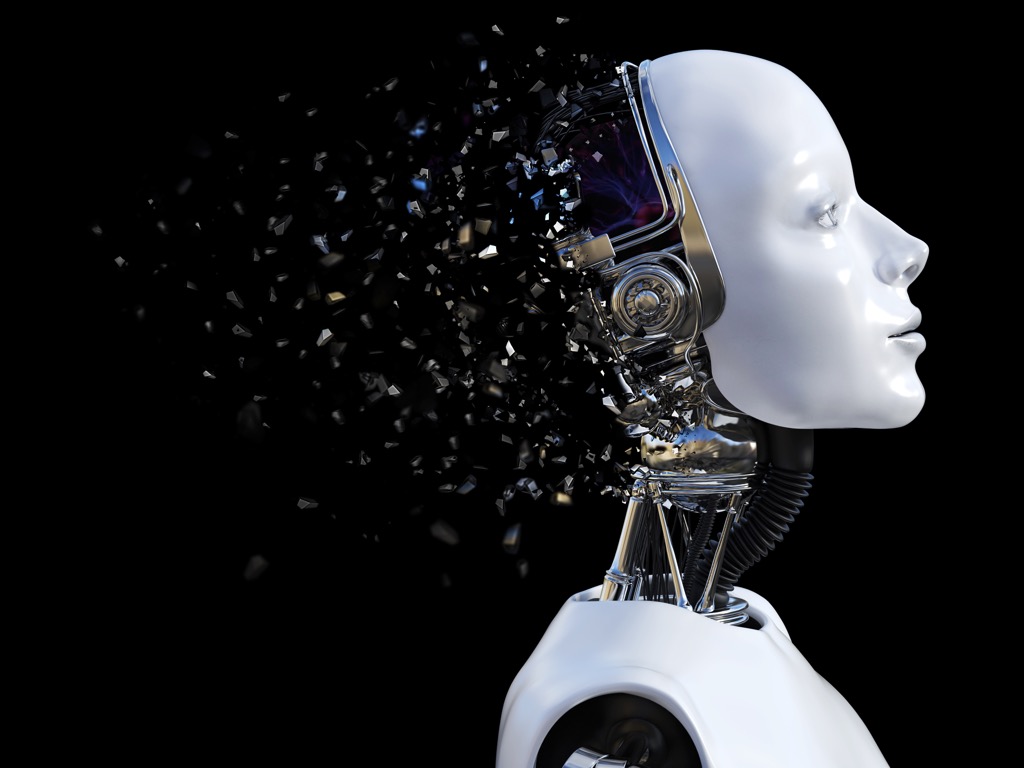
Scott Amyx expects that we will reach a point when technology and artificial intelligence will “exceed human intellectual capacity and control,” with machines passing the Turing AI test by 2029 and soon after our own intelligence will merge with the machines we are creating.
“The artificial general intelligence (AGI) or strong AI community, though varying widely in timeframe to reach singularity, are in consensus that it’s plausible, with most mainstream AI researchers doubting that progress will be rapid,” says Amyx. “However, in 100 years or so, it’s very plausible.” And if you’d still like to make it a fair fight, try these 13 Tips for a Sharper Brain.
To discover more amazing secrets about living your best life, click here to sign up for our FREE daily newsletter!















![Toni Kroos là ai? [ sự thật về tiểu sử đầy đủ Toni Kroos ]](https://evbn.org/wp-content/uploads/New-Project-6635-1671934592.jpg)


